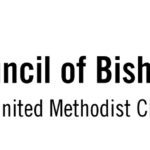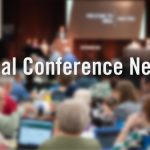All people, and all institutions have ways of doing things that help them get things done. It is how they make sense of things and how they make sense of what is happening.
C. Kavin Rowe wrote:
The phrase “Christ-shaped leadership” should appeal to any Christian leader. What else are we supposed to be doing as Christians if not leading in the pattern of Christ?
The trouble is that Christ-shaped leadership has been used too many times to name various techniques or spiritual attitudes — a discrete set of things to do or to feel that will enable the leader to lead Christianity. It is true, of course, that certain practices help develop Christ-shaped leaders.
But at its deepest level, becoming a Christ-shaped leader is about cultivating the right kind of background.1
So how do we, in this day and age, and firmly entrenched in our way of doing things, develop a stronger way of living and working together that empowers us to be the body of Christ that transforms the world? How do we enhance what we do well with the goal of making a difference in a deeply divided world?
Perhaps the answer is the leader’s ability to make connections between the following three things:
- An ability to conceptualize the situation at hand.
- The insight to develop metaphors to help interpret what is seen or experienced, and
- The creativity of viewing how the matter impacts the institution.
Great leaders have been able to hold those three things together in ways that inspire, as well as challenge. Again, Rowe points us in a direction to help us develop new ways of seeing, thinking and new ways of working together that empower our churches to be the body of Christ. He writes:
First, as prosaic as it may seem, we need to read Scripture regularly with special attention to the astonishing array of things that we hold apart but that seem to go together for the early Christians: religion and politics, public and private, economics and community, body and soul, even death and life.
A prolonged exposure to the unity of life as found in the New Testament will go a long way toward disabling our tendencies to divide and compartmentalize.
Second, we need to develop a guiding image that has connection at its core, and then teach this image as a way to imagine the world’s connections. L. Gregory Jones has recently written of “crossing borders,” and in an earlier reflection I emphasized the importance of networks.
But whether we think in terms of crossing borders or networks — or of the Internet or a thriving city, say — doesn’t matter as much as getting clear on the importance of what the image conveys: that things are irreducibly connected, that we must actively seek out their connection, and that to miss the connection is to misunderstand the world in which we live.
Getting hold of a good image alone won’t do enough work, of course. We also need to develop deeply ingrained habits of learning, but absent a guiding image, it is hard to see the telos of such habits. The image helps us to see where our habits are aimed.
Third, we need to find concrete examples of Christian leaders and communities who both see and live the connections of the world in relation to Christ’s redeeming lordship.
In Houston’s Fifth Ward, for example, Pleasant Hill Church exemplifies what it means to live the connections between active, traditional ministries and the fuller context of life in Houston.
Realizing, like the author of the Epistle of James, that it is difficult to call people to transformation when they have no place to live, Pleasant Hill began a community development corporation 20 years ago that has now built hundreds of houses.
Of course, children have to be educated, and people need somewhere to go when not at home. Is this the work of the church? In the Fifth Ward of Houston, it is.
Pleasant Hill has initiated a tutoring program and supported the launch of a community center, preschool programs and a charter school. In 2008, at a Duke Center for Reconciliation retreat with leaders of reconciliation efforts in the U.S. and Africa, pastor Harvey Clemons Jr. saw the connection between the work of his church and the undocumented immigrants that were moving into communities adjacent to the Fifth Ward.
Leviticus 19:34 suddenly sprang to life — “the stranger who dwells among you shall be to you as one born among you, and you shall love him as yourself; for you were strangers in the land of Egypt: I am the Lord your God” (NKJV) — and Pleasant Hill began working with leading sociologists at Rice University to highlight immigration issues in Houston and beyond. In short, Pleasant Hill Church is a living example of how to discern and actively make the connections that Christ’s universal lordship requires.
In an age where we take it for granted that the doctor looks at health, the engineer at buildings, the scholar at texts, the pastor at souls and so on, we have a hard time making the connections.
In today’s world we can no longer be a church that sees itself as separate from the communities around us. We are called to make sense of things in a way that builds the connections between what we hold precious in our faith and our calling to be instruments of hope and healing. I’ll give you a clue – it won’t happen if what we continue to focus on is our small group meetings, our ability to hold choir practice or our Sunday morning rituals, (all of which are important). It will take a larger vision, one that has been part of what made The United Methodist Church meaningful. We saw poverty as something that had to be addressed, we built schools and educated children. We saw the inequities of medical care, we built hospitals and clinics. We saw the injustice of inequality, we worked to end slavery and pushed for the rights of all people to vote.
How will God use you to change the world today, or at least your corner of it? It’s time we dream a bigger dream. God will help us.
1 https://faithandleadership.com/c-kavin-rowe-becoming-christ-shaped-leader
2 https://faithandleadership.com/c-kavin-rowe-cultivating-resilience-christ-shaped-leaders





